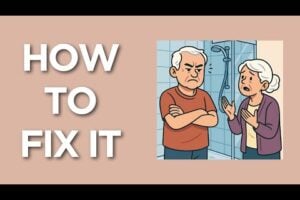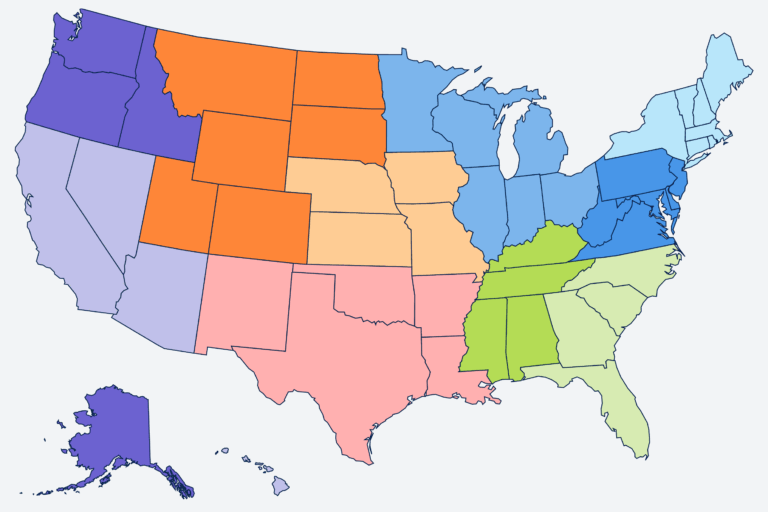Natural disasters cause severe disruption and threaten many people. People with Alzheimer’s disease can be especially vulnerable in disaster situations. Their impaired memory and reasoning may severely limit their ability to cope. For caregivers, it is important to have a disaster plan that incorporates the special needs of the person with Alzheimer’s.

“Riding It Out” at Home
Dementia Books & Videos on Amazon:
FREE Newsletter:
In some situations, you may decide to stay at home during a natural disaster. Plan ahead to meet your family’s needs and those of the person with Alzheimer’s for at least 3 days to a week. Include supplies and backup options in case you lose basic services. Refer to information from organizations such as the Federal Emergency Management Agency (FEMA) and the American Red Cross to make a general disaster plan.
You also will need special supplies for the person with Alzheimer’s. Assemble a kit and store it in a watertight container. The kit might contain:
- warm clothing
- sturdy shoes
- spare eyeglasses
- hearing aid batteries
- incontinence undergarments, wipes, and lotions
- pillow, toy, or something the person can hold onto
- medications
- favorite snacks and high-nutrient drinks
- zip-lock bags to hold medications and documents
- copies of legal, medical, insurance, and Social Security information
- physician’s name, address, and phone number
- recent photos of the person with Alzheimer’s
Also as part of your disaster planning, have practice drills, with each member of the household performing specific tasks. Do not give the person with Alzheimer’s responsibility in the plan. Assign somebody to take primary responsibility for him or her.
Because the needs of a person with Alzheimer’s will change as the disease progresses, periodically update your plan to reflect these changes. For example, he or she is likely to become less mobile in the later stages of the disease. How will that affect your plan?
If You Must Leave Home
You may need to move to a safer place, like a community shelter or the home of a family member. Consider how you will get the person with Alzheimer’s disease to go quickly and calmly. Be ready to use tactics that have worked in the past.
During relocation, the person with Alzheimer’s might become very anxious and start to behave erratically. Remain as calm and supportive as possible. He or she is likely to respond to the tone you set. Be sensitive to his or her emotions. Stay close, offer your hand, or give the person a reassuring hug. Do not leave him or her alone.
To plan for an evacuation:
- Know how to get to the nearest emergency shelters. Some areas have shelters for people with special needs. Local Red Cross chapters can direct you.
- If you don’t drive or driving is dangerous, arrange for a family member, friend, neighbor, or emergency service to transport you.
- Make sure that the person with Alzheimer’s is wearing an identification bracelet and/or that identifying tags are sewn into articles of clothing.
- Take both general supplies and your Alzheimer’s emergency kit.
- Bring your cell phone charger and keep the phone charged. Save emergency numbers to your phone, including the Alzheimer’s Association Safe Return phone number (1-800-625-3780), if you participate in that program.
- Plan to keep neighbors, friends, and family informed about your location. Give them your phone numbers and a list of emergency numbers.
- Be sure that other people have copies of the person’s medical records. If necessary, they can provide these records to emergency medical staff to ensure that the person receives appropriate treatment and care.
- Pack familiar, comforting items for the person.
- If conditions are noisy or chaotic, prepare to find a quieter place.
- Prepare to prevent wandering. Many people with Alzheimer’s disease wander, especially under stress.
- If possible, plan to take along the household pet to comfort the person.
If You Are Separated
You should not leave a person with Alzheimer’s alone, but the unexpected can happen. Avoid asking a stranger to watch the person if possible. Also, do not count on the person with Alzheimer’s to stay in one place.
To plan for possible separation:
- Provide local police and emergency services with photos of the person and copies of his or her medical documents, so that they are aware of the person’s needs. Be ready to alert them if you and the person in your care become separated.
- Be sure that the person with Alzheimer’s wears an identification bracelet.
- Contact your local Alzheimer’s Association chapter and enroll the person in the Medic Alert + Safe Return program —an identification and support service for people with Alzheimer’s disease who may become lost or injured.
- Make plans with trusted people who can help the person with Alzheimer’s. Educate them about the person’s disabilities. Give examples of simple instructions that the person may follow.
- Give a trusted neighbor, friend, or relative a house key and a list of emergency phone numbers.
Take Care of Yourself
Staying healthy helps you provide the best possible care to the person with Alzheimer’s disease. To protect your health during a natural disaster:
- Ensure proper nutrition and hydration.
- Rest.
- Practice good hygiene.
- Find a doctor and pharmacy.
- Find a good listener or spiritual support.
MORE INFORMATION:
Alzheimer’s Disease Education and Referral Center
P.O. Box 8250
Silver Spring, MD 20907-8250
1-800-438-4380 (toll-free)
1-800-222-2225 (TTY/toll-free)
www.nia.nih.gov/alzheimers
The National Institute on Aging’s ADEAR Center offers information and publications for families, caregivers, and professionals on Alzheimer’s disease research, diagnosis, treatment, patient care, caregiver needs, long-term care, and education and training. Staff members answer telephone, email, and written requests and make referrals to local and national resources. The ADEAR website offers free, online publications in English and Spanish; email alert and subscriptions; an Alzheimer’s clinical trials database; the Alzheimer’s Disease Library database (AD Lib); online resource lists; and more.
See the “Natural Disaster Safety” section of the ADEAR booklet Home Safety for People with Alzheimer’s Disease, available in English and Spanish.
Alzheimer’s Association
225 North Michigan Avenue, Floor 17
Chicago, IL 60601-7633
1-800-272-3900 (toll-free)
1-866-403-3073 (TDD/toll-free)
www.alz.org
See the Association’s list of points to consider in disaster planning when caring for someone with Alzheimer’s disease.
American Red Cross
www.redcross.org
The Red Cross Web site provides specific recommendations on the types and amounts of food, water, and supplies you should have on hand in the event of a natural disaster. It also tells you how to find your local Red Cross chapter .
Federal Emergency Management Agency (FEMA)
P.O. Box 10055
Hyattsville, MD 20782-7055
1-800-621-3362 (toll-free)
1-800-462-7585 (TDD/toll-free)
www.fema.gov
The FEMA Web site READY.GOV offers ways to “Plan Ahead for Disasters” tailored to specific types of disaster. It also provides a guide to locating local FEMA Disaster Recovery Centers.
U.S. Administration for Community Living
Washington, DC 20201
1-202-401-4634
acl.gov
See the Administration on Emergency Response Information for tips on emergency preparation, planning checklists, and ways to seek assistance after a disaster.
U.S. Department of Homeland Security
Washington, D.C. 20528
1-202-282-8000
www.dhs.gov
The Department of Homeland Security Web site provides Disaster Preparedness and Assistance Information for home health care providers that covers both human-made and natural disasters.
SOURCE:
Alzheimer’s Disease Education and Referral (ADEAR) Center
A Service of the National Institute on Aging
National Institutes of Health












If there is one thing I have learnt from the aftermath of natural disasters, is preparing to survive such harsh situations. Your article is quite forthcoming with information on how to survive hurricanes. This is great content, thanks for sharing. I also found some useful information here: http://survival-mastery.com/diy/construct/hurricane-shelter.html
Thanks